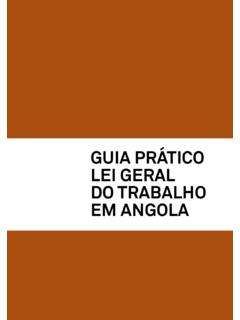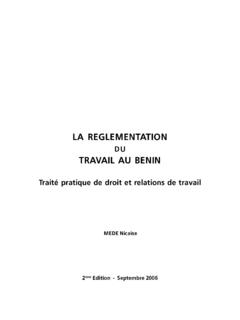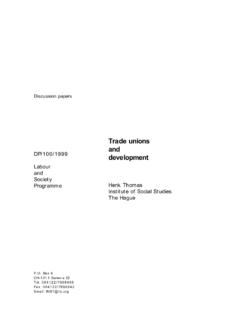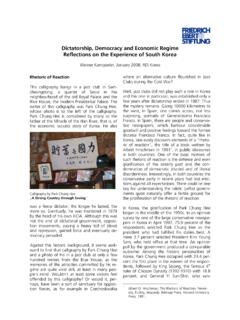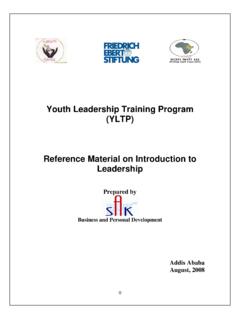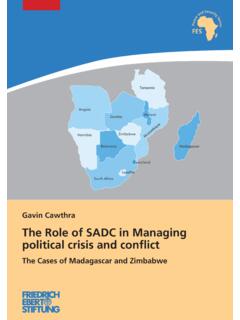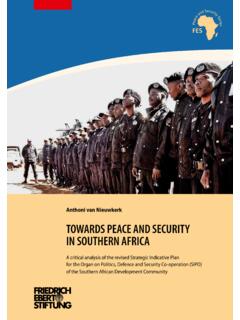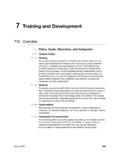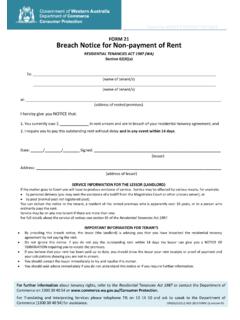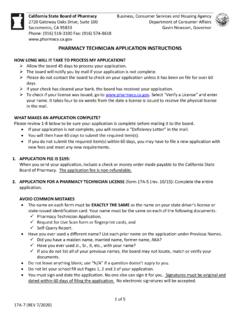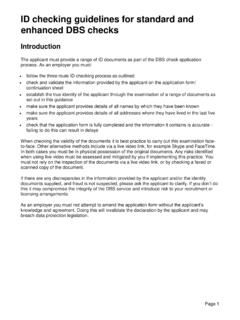Transcription of The law-making process in Ghana : structures and procedures
1 law-making process in Ghana : structures and procedures Table of ContentsForeword 3 Historical Overview of the Ghanaian Legislature 5 Composition of the Parliament of Ghana 6 Legislative process ( How a Bill becomes a Law) 9 Roles of Organs of Government in law-making 14 Parliament Committees 16 Private Members Bills 18 Effectiveness of the Ghanaian Legislative process 15 References 20 law-making process in Ghana : structures and procedures 2 ForewordOne of the goals of the Friedrich-Ebert-Stiftung is to consolidate democracy in Ghana .
2 To achieve this long-term goal, it is important to build the capacities of all public office holders and to have well-informed citizens. The key ingredient to realising this goal is education on roles, rights and responsibilities of every Ghanaian. Ghana s legislative process appears to be a complex matter which is reserved to be known by policymakers only. The language of the Constitution is not reader-friendly and difficult to allow all people in Ghana to understand the legislative process and find ways of influencing this, the Friedrich-Ebert-Stiftung cooperated with the Human Rights Advocacy Centre to simplify the process in this book law-making process in Ghana : structures and procedures .
3 This book also has a pictorial representation on an A2 poster. In the book, the introductory part covers the historical overview of Ghana s legislature and the composition of the Parliament of Ghana . The crux of this publication how a draft bill becomes a law is then discussed. Other sub topics of interest are: the procedure a citizen with legislative concern should follow, how long a bill takes to become a law, roles of governmental organisations in law-making and why some bills do not get in the Friedrich-Ebert-Stiftung express our gratitude to the Human Rights Advocacy Centre who cooperated with us on this project.
4 We acknowledge the fruitful and very useful comments of the Honourable Mr Justice V. C. R. A. C. Crabbe, Statute Law Revision Commissioner, and Dr Bossman Asare of the Political Science Department of the University of Ghana who validated the is our hope that this book will serve as a credible reference source and an information material for students, policymakers, advocacy groups and the general KuzuResident Director, FES Ghana Every state structure is complex but in order to make a contribution to policymaking as well as influence decisions.
5 It is necessary to have an insight into the political system 3 ForewordHistorical Overview of the Ghanaian LegislatureThe Parliament of Ghana is organised into a Unicameral Legislature. There is only one parliament, which exercises all primary legislative Article 11 of the 1992 Constitution of Ghana states: The laws of Ghana shall comprise- (a) this Constitution; (b) enactments made by or under the authority of the Parliament established by this Constitution; (c) any Orders, Rules, and Regulations made by any person or authority under a power conferred by this Constitution; (d) existing law; and (e) common law.
6 2 Therefore, chief legislative power has been vested in the Parliament of Ghana . Although the current constitution vests principal legislative power in parliament, this appropriation of authority was not always the case. In 1850, the first Legislative Council was established to advise the Colonial Governor in enacting legislation. Although this Council prevented direct involvement of the people, it served with its enlargement in 1916 under Sir Hugh Clifford as a representation chamber [see Political History of Ghana , Kimble, p433 et sec] as a precursor to today s representative democracy.
7 In 1925, the Guggisburg Constitution created a Provincial Council for paramount chiefs, representing selected colonial Although the system appeared to recognise African concerns, it continued to be dominated by British interests, which limited the amount of African representation in the government. However, the introduction of the elective principle induced radical change in the political history of Ghana . Both the Burns Constitution of 1946 and the Coussey Committee s recommendations which formed the basis for the constitution of 1951 altered the structure of government by increasing the number of African representatives.
8 But complete representation was not achieved until In 1951 it was a representative government. In 1954 it was responsible government which paved the way for self-government of Dominion Status in constitution of 1954 called for the election of a 104-member assembly, all elected through political representation along party lines. This laid the foundation for the political structure surrounding Ghana s independence in 1957. Since gaining its independence from British colonial rule, the Parliament of Ghana has continued to improve the lives of Ghana s citizens by representing their concerns and voicing their opinions at the legislative level.
9 In the performance of its functions, however, the executive both implementsand determines law. 1 2 Article 11, 1992 Constitution of the Republic of Ghana 3 Okudzeto, Sam. Safeguards for Democracy the Role of the People . Problems and Prospects of Democratic Governance in Africa. Friedrich Ebert Foundation, Ghana Office: Accra, 1996. 4 Okudzeto, Sam. Safeguards for Democracy the Role of the People . Problems and Prospects of Democratic Governance in Africa. Friedrich Ebert Foundation, Ghana Office: Accra, of the Parliament of GhanaThe Legislative branch of the Ghanaian government passes bills which assented to by the President, become the laws which protect the constitutional rights of the citizens of Ghana .
10 The elected body consists of no less than 140 members. 5 A Member of Parliament must be a citizen of Ghana and must have attained the age of 21 years and be a registered voter. 6 Article 94 further states: a Member of Parliament must hold current residence in the area he or she represents or has lived in the area for at least 5 of the 10 years preceding his or her election. All taxes must be Criminal cases, bankruptcy, or other judicial issues can prevent a citizen from becoming a Member of Parliament. Article 94 of the 1992 Constitution outlines possible reasons for someone not being qualified to become a Member of Parliament: (1) A person shall not be qualified to be a Member of Parliament if he: (a) owes allegiance to a country other than Ghana ; or (b) has been adjudged or otherwise declared bankrupt under any law in force in provisions of the constitution outline possible reasons for the ineligibility of candidates for Parliament.
